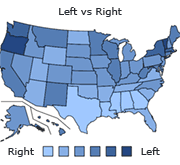So you think you know your numbers...
Mathematics (colloquially, maths or math) is the body of knowledge centered on such concepts as quantity, structure, space, and change, and also the academic discipline that studies them. Benjamin Peirce called it "the science that draws necessary conclusions". Other practitioners of mathematics maintain that mathematics is the science of pattern, and that mathematicians seek out patterns whether found in numbers, space, science, computers, imaginary abstractions, or elsewhere. Mathematicians explore such concepts, aiming to formulate new conjectures and establish their truth by rigorous deduction from appropriately chosen axioms and definitions.
Through the use of abstraction and logical reasoning, mathematics evolved from counting, calculation, measurement, and the systematic study of the shapes and motions of physical objects. Knowledge and use of basic mathematics have always been an inherent and integral part of individual and group life. Refinements of the basic ideas are visible in mathematical texts originating in the ancient Egyptian, Mesopotamian, Indian, Chinese, Greek and Islamic worlds. Rigorous arguments first appeared in Greek mathematics, most notably in Euclid's Elements. The development continued in fitful bursts until the Renaissance period of the 16th century, when mathematical innovations interacted with new scientific discoveries, leading to an acceleration in research that continues to the present day.

